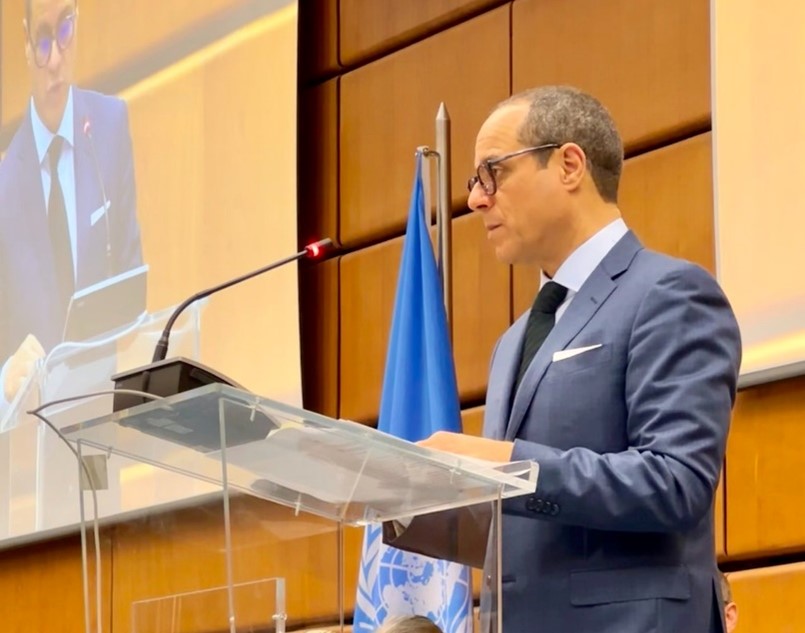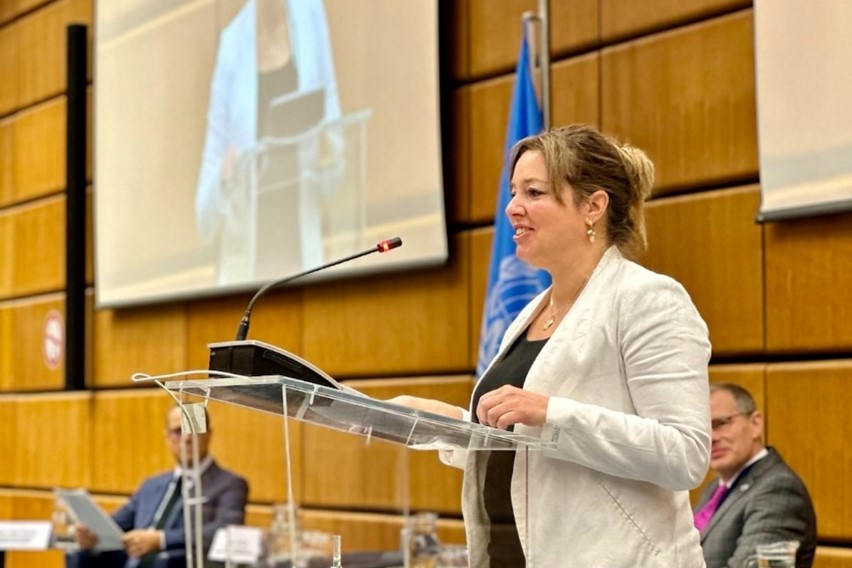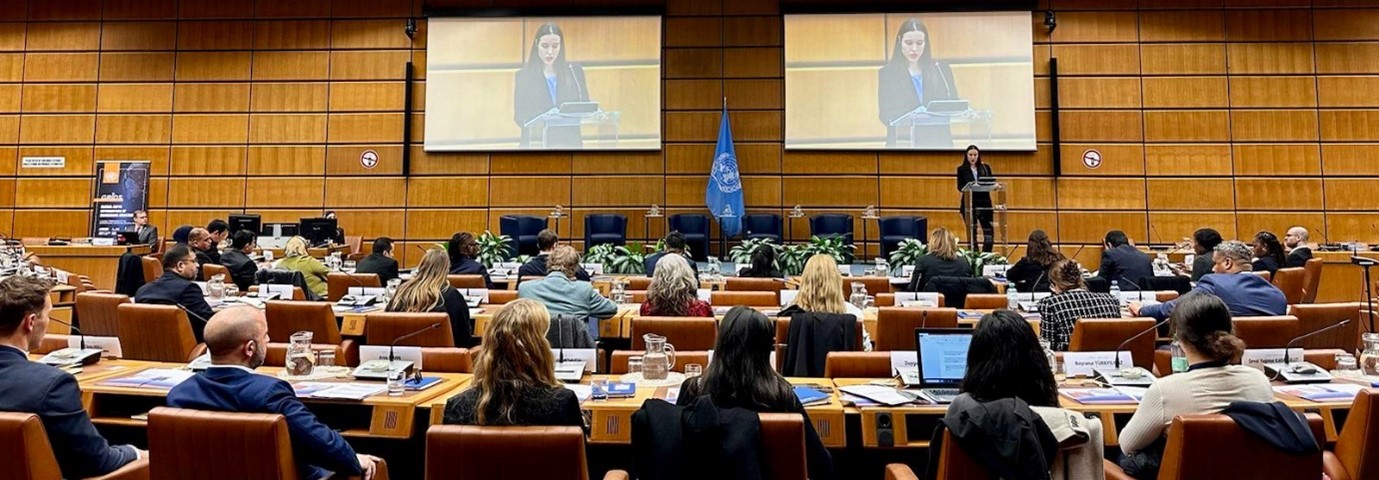Tech Against Trafficking: Practical approaches to countering cross-platform exploitation of online services

VIENNA, 5 March 2024 - The International Narcotics Control Board (INCB) President Prof. Jallal Toufiq opens the Tech Against Trafficking at the United Nations in Vienna, a four day global event focusing on the pivotal role and influence of technology companies in the fight against illicit drug trafficking across the internet.
Hosted by the Global Rapid Interdiction of Dangerous Substances Programme, the event brought together member states, international organizations, and online industry leaders from the private sector providing a robust platform for collaborative discussions and practical steps to address cross-platform exploitation of legitimate services. The event aims to delve into the future landscape of counter-trafficking and online abuse efforts, specifically addressing the challenges and advancements related to synthetic drugs, new psychoactive substances (NPS) and in particular synthetic opioids and related chemicals.
Opening the event, Prof. Jallal Toufiq, President of the International Narcotics Control Board, noted that, "The misuse of Internet or social media postings that link to e-commerce platforms that connect to third party financial services has become increasingly interconnected, and young people are increasingly targeted. The rapid advancement of new platforms and widely available artificial intelligence and large language models offer increasingly sophisticated opportunities to evade detection and targeting by law enforcement."

Photo: Angela Veitch, Deputy Permanent Representative of Canada to International Organizations in Vienna opens the global Tech Against Trafficking event
At her opening statement, Ms. Angela Veitch, Deputy Permanent Representative of Canada to International Organizations in Vienna, noted that " Canada experienced nearly 4000 opioids related deaths or an average of 22 per day, with a greater proportion of deaths for younger persons. As such, Canada recognizes the urgent need to elevate cooperation between the public and private sector that identifies, exchanges information and prevents exploitation of legitimate online services in real-time."
Under the auspices of the GRIDS | Global OPIOIDS Project, over 70 officers, experts and officials from governments, international organizations and industry leaders from private sector companies shared their experiences and perspectives on their efforts preventing online marketing and sales of non-scheduled dangerous substances globally. Experts discussed opportunities around information flags, technology tools and techniques for meaningful voluntary cooperation between public and private partners.
International partner organizations such as CARICOM IMPACTS, Interpol, UNODC, the Universal Postal Union (UPU), and the World Customs Organization (WCO) also participated at the event that discussed international, regional and private sector future engagement in practical approaches. Leading tech companies from around the world provided unique insights, practices and perspectives in their systems that go beyond borders.
Participants were also provided the latest updated INCB lists of 153 fentanyl-related substances including those potentially used in illicit manufacture, 69 emerging non-fentanyl opioids and the newly published list of 37 novel benzodiazepines, all with no known legitimate uses. As part of event, Mr. Fumio Ito, Project ION manager underscored the importance of public-private partnerships, information sharing, and the development of innovative solutions to address this global challenge" and added that the "success of these efforts relies on the continuous engagement and cooperation of all stakeholders involved in the fight against the trafficking of dangerous substances, such as deadly opioids with no known legitimate use."

Photo: Photo: activities used the INCB Practical Guidance for Voluntary Cooperation for Industry to prevent trafficking
The Board's Global Rapid Interdiction of Dangerous Substances (GRIDS) Programme and Project ION and OPIOIDS Project support Governments' capacity to respond to changing trafficking, illicit manufacture, marketing and sales of NPS, non-medical synthetic opioids and fentanyl-related substances by providing real-time communication, facilitating information exchange and intelligence development that interdict distribution of dangerous substances.
The GRIDS Programme is supported by the Governments of Canada, Japan, and the United States. This event was made possible through the generous support from Global Affairs Canada's Anti-Crime Capacity Building Program.
Click here to learn more about the GRIDS Programme
Click here to learn more about the OPIOIDS Project
Click here to learn more about the Project ION